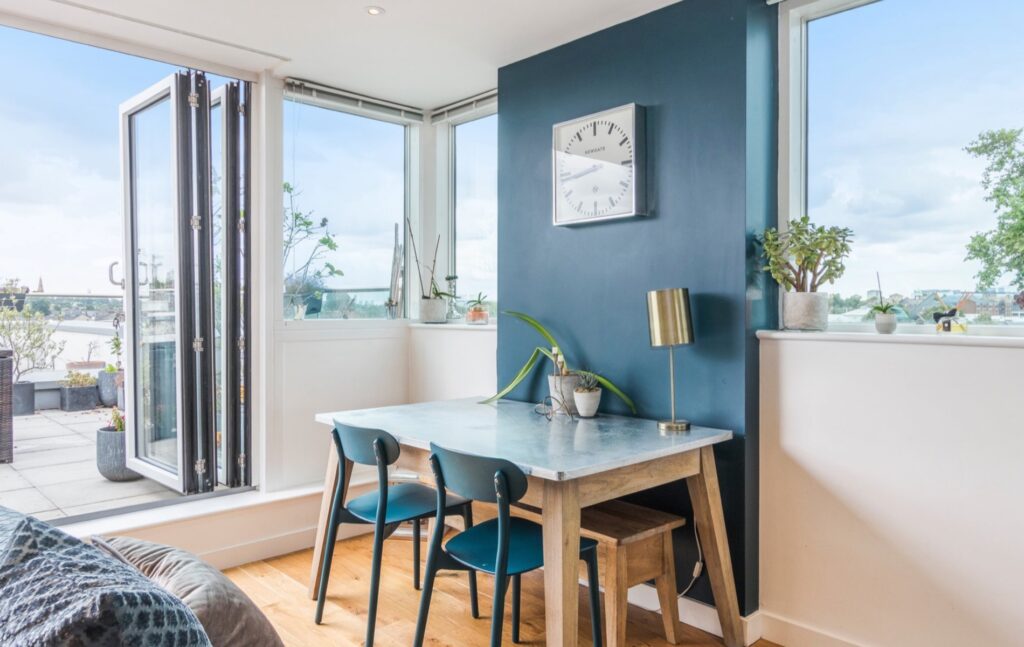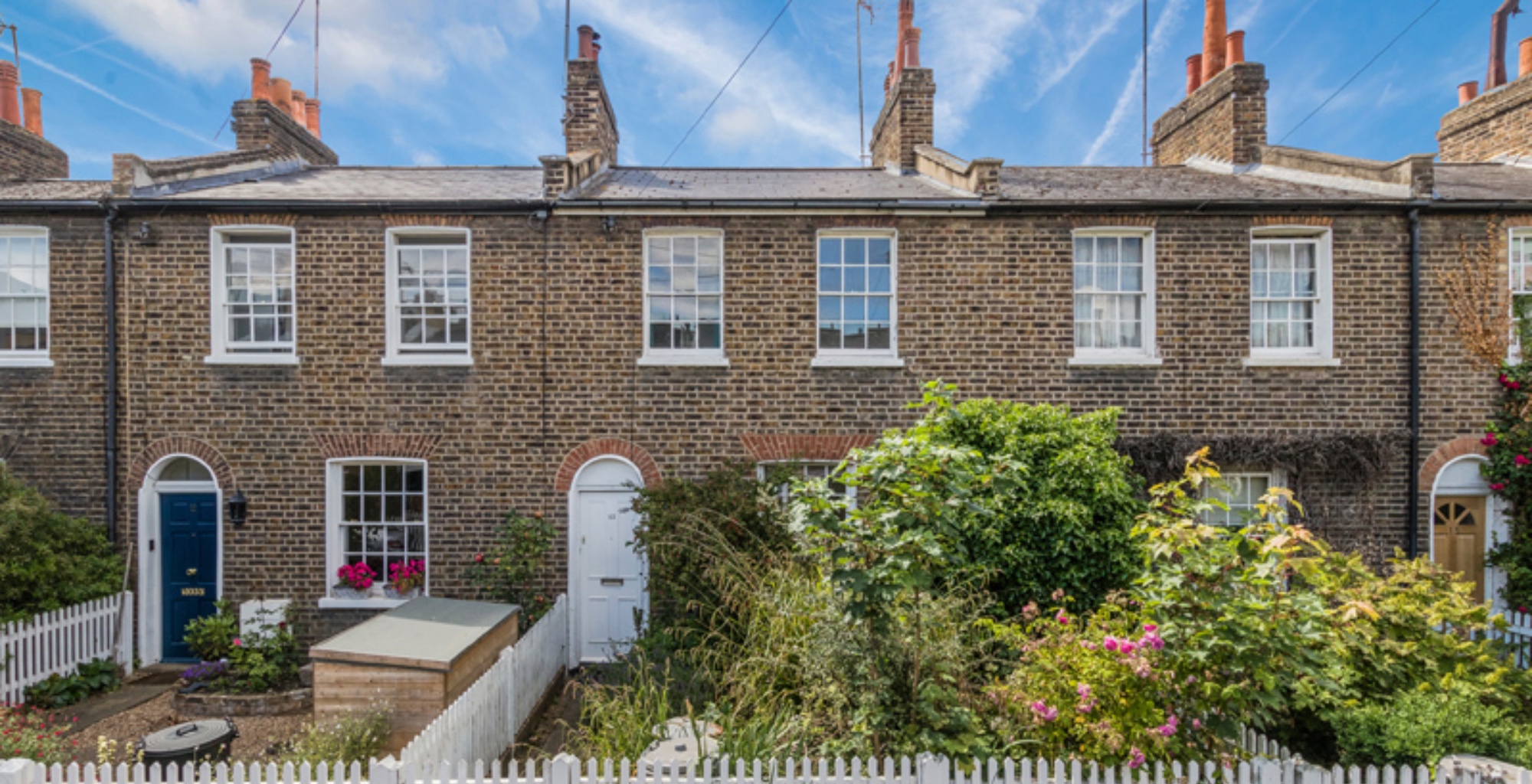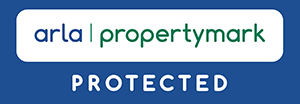When it comes to selling a buy-to-let property you can either sell the property as tenanted, with the tenants remaining in the property after completion or sell as vacant, meaning the tenants and their possessions will be out of the property on or before completion.
Selling a buy-to-let property as vacant opens the possibility of selling to the entire market, including end-users seeking a new home, whereas selling with a tenant staying means the property will only be available to investors who are interested in securing a buy-to-let.
Selling as vacant doesn’t mean you need to have ended the tenancy prior to marketing the property for sale, it simply means that the situation needs to be well managed and that the tenants and all possessions must be out of the property at the point of completion. Your solicitor may, as a protective measure, require the vacant possession to be available on exchange of contracts.
The key to success when selling a buy-to-let property is to keep all parties informed to achieve the greatest possible outcome.
Here we explore the variables involved when selling a buy-to-let property and share our top tips for achieving the best possible outcome.
Selling with a tenant
Generally, when a landlord is selling with a tenant, this means that the tenant will remain in the property after the sale has completed – in this scenario only another investor can buy the property. Think of it as a package deal for a potential new owner, a business transaction of sorts.
A potential investor will be buying an asset that has a proven track record of generating passive income. The current owner will provide their selling agent with the rental figures so that they can give a potential investor the accurate current yield being achieved.
Existing investors will appreciate that good tenants can be hard to come by, meaning there can be an additional appeal to a potential investor seeking a buy-to-let property.
As it is often an information-based purchase rather than an emotional one, transactions where a landlord sells to an investor can be more straightforward and take place more swiftly once terms are agreed.
What happens if you sell a property with a tenant?
When you sell a property with a tenant, at the point that the transaction completes, the tenancy will move over to the new owner and the tenant will pay the rent directly to them.
Before you get to the point of a sale completing though, there are a few points to be mindful of if you are selling a property with a tenant. Firstly, the contract between yourself as the landlord and the tenant will outline terms surrounding viewings.
The tenant will have a right to ‘quiet enjoyment’ during the tenancy – a landlord cannot just begin viewings without prior agreement from the tenant that this is ok.
If the tenancy is ending it is usually written in the contract that viewings are permitted in the last two months of the contract, with appropriate advance warning.
Landlords intending to sell a property with a tenant should read their contractual terms and understand the rights of their tenant before moving forward with marketing the property.
There is certain information that a potential investor will want to see such as:
- Evidence of the tenants’ Right to Rent
- A signed tenancy agreement
- Gas Safety Certificate
- Electrical Safety Certificate
- Confirmation that the deposit is within a protected scheme
If the landlord engages a professional managing agent to oversee the property, they will have documentation on file should the landlord not be able to locate it.
Does a tenant devalue a property?
Whether or not a tenant devalues a property is entirely case by case. Certain properties lend themselves to being a great investment prospect and will clearly spike the interest of an investor.
Other types of properties, such as a house in the heart of Brackenbury Village, are likely to appeal more to an end user than an investor particularly since family houses in desirable parts of West London are in such high demand from buyers and premium prices are often paid. In this circumstance it might be that selling a house with a tenant who will stay at the property, might mean the best price cannot be achieved.
It’s important to be mindful of this, consult with your estate agent if you’re unsure of the best strategy for selling your buy-to-let property.
Is it easier to sell a property with tenants?
If you intend to sell a buy-to-let property with vacant possession, meaning the tenant will leave prior to completion of the sale, and that tenant keeps the property in good order, and has tasteful furnishings, it might be that the property is easier to sell with tenants still living there.
This can also go the other way, as in some instances a tenant might not be keeping the property in the best condition, and this can be to the detriment of a potential sale when appealing to an owner-occupier.
For a variety of reasons, it might be important for a tenant to stay at the property until a property transaction has exchanged or completed, in many cases the tenant paying rent might be paying the buy-to-let mortgage on the property, meaning it is much better for the landlord if the tenant stays at the property until the sale is secured.
Tips for selling with a tenant
Most vendors will consider what they can do to boost their property’s appeal before bringing it to the market for sale. Whilst a landlord is limited in what they can do on the inside of the property whilst their tenant continues to live there, they may be able to improve the external parts. Taking steps such as paying for a gardener to tend to the outside space if it is currently not in a good condition, or carrying out minor works to the front of the property that might boost the curb appeal. Any effort to this end does not need to be costly, small steps such as cleaning the windows can have a positive impact.
With tenants in the property during the marketing, initial photography, any subsequent viewings, and further down the line a survey and/or valuation, it is incredibly important for your selling agent to demonstrate their experience in handling the relationship between tenant and landlord to ensure the tenant is still able to enjoy their home throughout the process of it being sold.
Given that so many individuals now work from home for part or all of the working week and that there might also be a tenant’s busy family schedule to consider, it can be prudent to agree on some set times that are suitable for viewings in advance of putting the property up for sale.

What does selling with vacant possession mean?
Selling a property with vacant possession means that the owner has a responsibility to ensure that all belongings and tenants have left the property upon completion, except those items that might have been agreed to be left behind as per the contract.
If you’re planning to sell with vacant possession but there is currently a tenant living in the property there will be a notice period to be given to the tenant, detailed within the tenancy agreement, it’s important to give this information to your selling agent and solicitor so that the transaction can be managed accordingly.
What happens when you sell buy-to-let property?
When you sell a buy-to-let property there are several points to consider that are unique to the scenario such as taxes and tenancy agreements.
- Investment properties are usually subject to Capital Gains Tax – speak to an advisor to establish what this figure might be.
- There might be a penalty from your mortgage company if you are exiting the agreement before the end of your fixed-term agreement.
- Most tenancy agreements will allow for viewings to be conducted in the final few months of the agreement – check your contract to see what the agreement is.
- If the property is to be sold with vacant possession the tenant will have to have left, with all their belongings and the landlord will have had to have cleared any of their items from the property by this point also.
There are often many unique variables when selling a buy-to-let property that are changeable based on ownership structures and desired timeframes, a seasoned estate agent will be able to provide impartial advice and work together with your elected professionals handling financial and tax elements to a successful conclusion.
Selling your buy-to-let property
If you’re considering selling a buy-to-let property in West London and are seeking to learn more about selling with a tenant or explore selling as vacant, our team would be happy to discuss this with you further, without obligation – get in touch.





